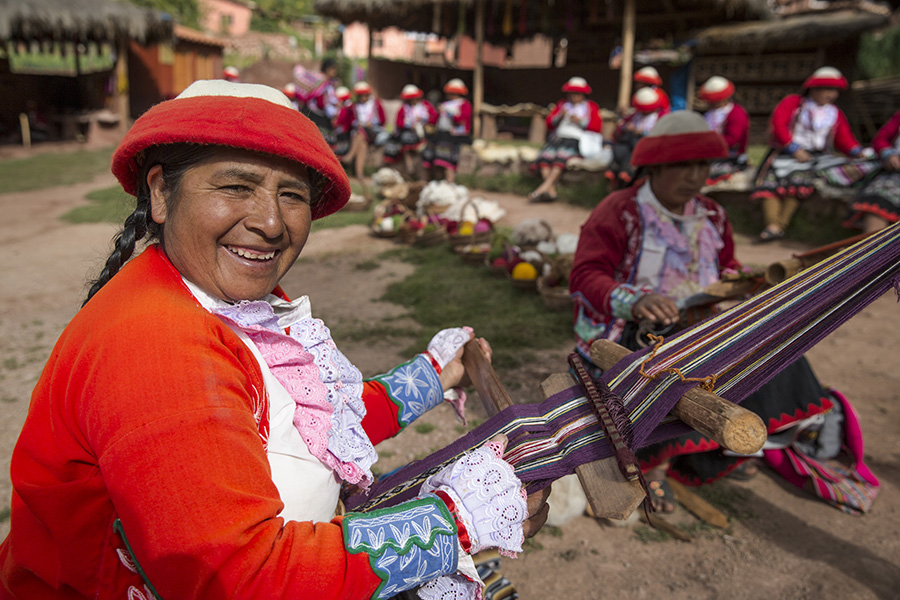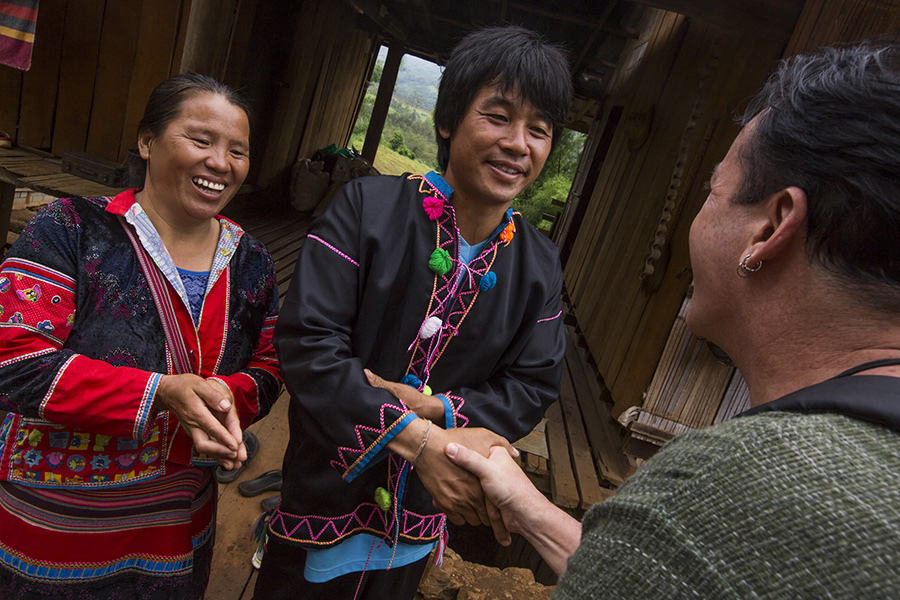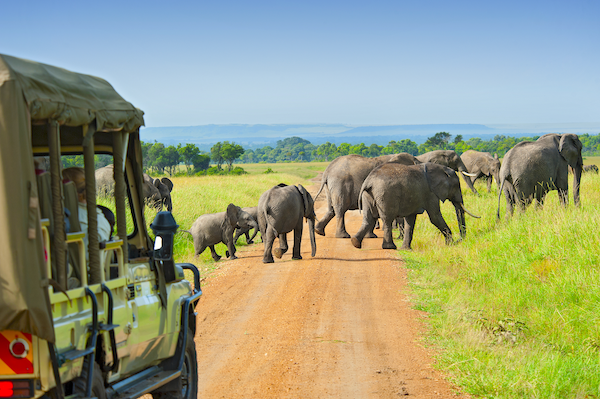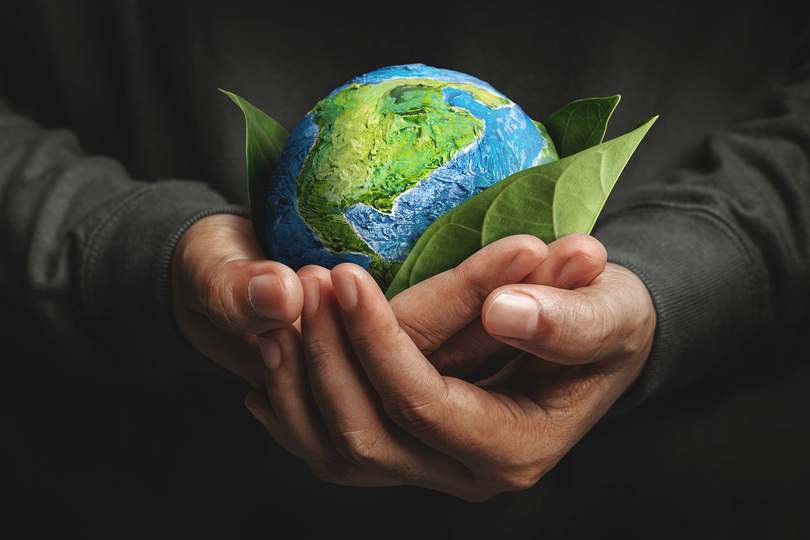"If a tour operator doesn't have a good answer to that, it should be a red flag"
It’s vital we hold the travel industry to account if we sense any exploitation of Indigenous communities for the benefit of tourism, Planeterra president Jamie Sweeting tells TTG to mark International Day of the World’s Indigenous Peoples today

Once upon a time we didn’t see a problem with watching animals perform for entertainment. But times change. We now recognise it is abhorrent to keep animals in captivity for this purpose and there’s a growing movement against it.
As we mark International Day of the World’s Indigenous Peoples, Jamie Sweeting, president of not-for-profit Planeterra, hopes a similar tide is turning against exploitative Indigenous tourism.
For an example of this, he highlights the San people, the earliest hunter gatherers of southern Africa, who were misrepresented in the 1981 adventure-comedy film The Gods Must Be Crazy.
“This exploitation is still going on today,” he said. “Hotels claim to offer accommodation for nomadic people but it’s in abysmal concrete blocks with no sanitation. The owners say to them: turn up at this time, dress this way, do this dance, all to meet stereotypes of the San people.”
“It made me cry, it was one of the saddest experiences to witness,” he added.
There are 370 million Indigenous peoples spread across 70 countries worldwide, according to the United Nations Permanent Forum on Indigenous Issues.
Indigenous peoples are the descendants of the original inhabitants of countries or regions at the time when people of different cultures or ethnic origins arrived, who then became dominant through conquest or occupation.
Over the course of modern history, these Indigenous descendants tend to be the most marginalised, disenfranchised communities, and yet they safeguard huge chunks of biodiversity, and vast cultural and linguistic wealth, while being subjected to huge pressures to conform and be part of the modern world.
Entertainment or exploitation?
When these communities collide with tourism, at worst, the interaction takes on "white saviour" connotations – we’ve all endured cringeworthy "cultural shows" in holiday hotels where we learn nothing but how to dance badly. However, if done right, Indigenous peoples can be empowered by their experience of hosting travellers and the partnership is one of equity.
Planeterra is a world-leading NGO turning travel into positive impact communities and its leader Sweeting has spent 25 years working in tourism, conservation and development. With Planeterra he has produced guidelines for responsible travel with indigenous people, which can be used by the tourism industry at large.
Sweeting said it was important to ask questions around Indigenous tourism experiences, such as: “Are they [Indigenous people] being lifted up? Are they in control of their own destiny or slaves to foreign culture and commercial activity they don’t want to be a part of.”
There was a lot for the industry to consider, he stressed. “Is tourism right for this community, or is it the least worst option? They are difficult conversations to have, but we have to confront the reality, the youth want to leave, move to the nearest town or city, and the elders need to find economic activity to keep them in the community.
“There’s often an argument that tourism is the least damaging, when compared with more destructive land use practices such as slash and burn or mining but we still need to minimise its negative impacts.”
There’s a huge variety of more positive examples, said Sweeting, including Canada, on its own journey of reconciliation, which has “phenomenal programmes” under the umbrella of the Indigenous Tourism Association of Canada (ITAC).
He also referenced Kaikoura on New Zealand’s South Island, one of the whale-watching capitals of the world, where virtually all experiences are owned by the Maoris and Indigenous islanders. “This is a world-class example of Indigenous tourism competing at an international level, delivering a high-quality experience that still benefits the growth and development of those less well off in the surrounding communities,” he said.
Tribe and tested
Sweeting was instrumental in shaping the itinerary for Planeterra partner G Adventures’ Northern Thailand Hilltribes Trek.
He explained: “I was guilty 30 years ago of doing a hill tribe trek – we thought we were benefitting the hill tribes but in actual fact we gave all our money to non-indigenous communities; we bought food in a market in Chiang Mai to carry with us and we all shared one room. The locals didn’t benefit.”
G Adventures redefined the itinerary, to include three different hill tribes, and each of those tribes is run by community tourism. Local guides are provided by the village, which also offer homestays for pairs of trekkers.
Sweeting added: “For a group of 16 sharing rooms between two plus a G Adventures guide, nine households benefit. Then different households provide the meals and a schedule is drawn up to rotate the hosts / cooks for larger villages so the benefits are shared around. Hiking from one village to the next is an interactive botany class, as the Indigenous guides teach you about the medicinal plants they use.”
Another example incorporated into G Adventures’ tours is CCaccaccollo women’s weaving cooperative in Peru’s Sacred Valley. Eighteen years ago, a group of women walked into G Adventures’ local office, and asked how Indigenous women could benefit from tourism in the same way that the men were.
“Five women were doing traditional handcrafts and we started a partnership with them. They expanded the operation to make [souvenir] items for travellers and let us see the whole process, how they shear alpacas and llamas, make and dye the wool, and use it for weaving. Fast forward to now and it’s thriving, with 56 members, hosting upwards of 10,000-15,000 travellers a year.”
The impact was seismic, explained Sweeting: “Twenty years ago only 30% of women in the community went on to secondary education – now virtually every young woman will graduate high school and two-thirds will go on to university. There’s a generational span to this… the transformation of a rural village has enabled them to redefine future pathways and dreams for their children.”
How to fix this
He had this advice for agents: “If you care about this, take time to educate yourself – ask travel companies, what are you doing in terms of good practice – what are you doing to make sure Indigenous people are being safeguarded and not being exploited – if a company doesn’t have a good answer to that, then it’s a red flag.”
And he shared his optimism that although there’s not equity for all Indigenous communities yet, the industry is on the right track.
“The British traveller has transformed and a growing percentage won’t tolerate wrongful behaviour any more. We are seeing more mainstream travellers wanting to do the right thing – they don’t want to be part of something that harms other people or animals,” he said.
“If you or your clients see stuff you don’t like, tell the company running the trip, that’s not right.”
Further resources:
Indigenous Tourism Association of Canada (ITAC)















